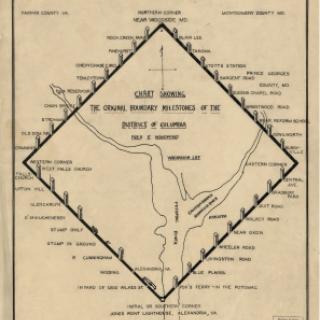Lefty Brewer's Ultimate Sacrifice: A Baseball Star Leaves Washington for WWII and Never Returns
“He’s a sure winner. I’ll stake my reputation on him.”[1]
Scout Joe Cambria of the Washington Senators was in Florida in the summer of 1938, seeking out new recruits for D.C.’s major league baseball team. As was so often the case, the Senators were struggling: they had finished 6th in the American League in the 1937 season,[2] and would soon finish 5th for the 1938 season.[3]
But when Cambria watched Forrest “Lefty” Brewer pitch for the St. Augustine Saints that summer, he had no doubt that this was the player for whom they had been searching.
A slender, 6’1”, “pale, hungry-looking southpaw,”[4] Lefty Brewer was a natural on the baseball diamond. Though his family moved around frequently, the Brewers eventually found a home in Jacksonville, Florida, where the young boy developed a love for sports, particularly baseball. Brewer developed his pitching and fielding skills, attending a baseball training school at age nineteen. Shortly thereafter, he accepted an offer to play minor league baseball with the Class D St. Augustine Saints.[5]
The 1938 baseball season was a terrific one for Brewer. In his very first year as a professional ballplayer, Brewer led the Florida State League with 25 wins, 234 total strikeouts, and a 1.88 ERA.[6] Certainly, the highlight of his career was his dazzling no-hitter—the only one in the league that year—which he hurled on June 6, 1938, against the Orlando Senators.[7]
Brewer was a crowd favorite, leaving an impression on all who watched him play. At the end of Brewer’s rookie season, Florida State League secretary Peter Schaal said of the young man:
“When future historians prepare their texts on Florida State League history, you can bank on it that the antics of one Forrest ‘Lefty’ Brewer … will occupy a major portion of the space assigned to hurling heroes. Brewer is easily the greatest young prospect ever to go out of the Florida State League.”[8]
Known for his commanding fastball and athleticism, Brewer was an up-and-coming left-handed pitcher: exactly the player that the Washington Senators needed at that time. When Cambria reported back to his bosses with the Senators after his 1938 trip to Florida, the scout declared Brewer ready for the majors, despite being a teenager with just a few months of minor league ball under his belt.[9]
Heeding Cambria’s advice, team owner Clark Griffith purchased Brewer’s contract from the St. Augustine club, and took great interest in the young prospect. He invited Brewer to visit D.C. that autumn, where the rookie watched major league baseball for the first time. The following spring, Brewer went to spring training with the Senators.[10]
News of Brewer’s performance in the minor leagues soon hit Washington newspapers, exciting readers at the possibility of a Senators revival. Manager Harris was reported to have pegged Brewer and two other rookies in training as being worth between $40,000 and $50,000 each “to any major league club in about three years.”[11]
Deciding their promising prospect needed a bit more seasoning, however, the Senators sent Brewer back down to the minors during spring training in 1939. While he struggled to replicate the outstanding statistics that had elevated his status in the baseball world a year earlier, he remained a favorite among Florida audiences. And, after demonstrated improvement in 1940, Griffith once again invited him back to Washington.
Lefty’s name would be on the Senators’ spring training roster in 1941. But the name of Forrest Brewer would also appear on another roster: the National Defense Service List.[12]
Just before the beginning of spring training in 1941, Senators Manager Bucky Harris was startled to find that Brewer had not made his connection with the Senators’ train in Florida. Harris soon discovered that the pitcher’s draft number had been called two days prior, and his presence was required at Camp Blanding, Florida, in early March. Along with hundreds of other ball players, Brewer entered military training. He was the first member of the Washington Senators to be drafted.[13]
Lefty Brewer trained at Camp Blanding for just under a year, and then volunteered to train as a paratrooper in Georgia, eventually becoming a platoon sergeant, and ultimately a private, of the 508th Parachute Infantry Regiment (PIR). All the while, Brewer played baseball with his fellow troops, pitching for the 508th Red Devils. He returned home to see his family whenever possible.[14]
Brewer’s infantry unit was sent overseas in 1944 and prepared to see action on the battlefield. The men continued to train hard and play baseball, enjoying the excitement that came with England, and anticipating the imminent invasion of Europe. In the final days before the invasion, Brewer and other troops even staged one last ballgame in Nottingham, England, to savor the sport that they so loved and misdirect German intelligence.[15] Around the same time, Brewer wrote to his family: “Don’t any of you worry about me, just keep your fingers crossed for me as you did at the ball games and I will be all right.”[16]
In the early hours of June 6, 1944, exactly six years after Brewer’s magnificent no-hitter in the Florida State League, the pitcher jumped from a C-47 plane and into the night. Tragically, the pilots of the planes had miscalculated the location of the drop zones. Brewer and his fellow troops found themselves landing in an area surrounded by the enemy, near the Merderet River. Amidst hours of confusion on the ground, the 508th PIR attacked the German forces, but the men were eventually surrounded by a heavy German counterattack.
Several men, including Brewer, were trapped; he and another paratrooper, Bill Dean, attempted to make a run toward the river amidst gunfire. Dean later recalled:
“As I ran for the river, I was aware someone was running hard just behind me, and in my panic I took a quick look and saw Lefty, at port arms, running like he was going to stretch a triple into a home run.”[17]
Lefty Brewer died at this moment, struck down by the gunfire.
In the months to follow, Brewer was reported missing, until his death was finally confirmed. Along with his family and friends, his mourners included the surviving troops with whom he had served, the minor league ballplayers with whom he had played, and the Washington Senators management and team. In a letter to the Brewer family, Clark Griffith expressed a deep sadness at this loss: “Forrest was such a fine upstanding young man… and all connected with the Washington club dearly loved him.”[18]
Since the events of D-Day and World War II, Lefty Brewer has been inducted into the Jacksonville Sports Hall of Fame.[19] However, his name is still unrecognized by much of the baseball community and its fans. Had the young pitcher survived the events of D-Day and returned to stand on the mound at Griffith Stadium, he might have changed the course of baseball history in Washington. However, Lefty Brewer's life had a greater purpose. For this reason, we honor his sacrifice and those made by so many other soldiers involved in the D-Day invasion. They served with courage, strength, and heroism, propelling the Allies toward victory at the expense of their own dreams. For that, we can only say thank you.
Much of this post's content is derived from Gary Bedingfield's extensive research and writing on the life of Lefty Brewer. His website, “Baseball in Wartime,” shares information about baseball as related to World War II, and honors baseball players who served their country. Please visit his site for more information about Lefty Brewer and other ball players who have served our country.
Footnotes
- ^ "Griffmen to Have Most Pretentious Training Campaign in Big-League History," The Sunday Star (Washington, DC), January 1, 1939, Sports section, 11.
- ^ Sports Reference, "1937 Washington Senators Statistics," Baseball Reference, https://www.baseball-reference.com/teams/WSH/1937.shtml.
- ^ Sports Reference, "1938 Washington Senators Statistics," Baseball Reference, https://www.baseball-reference.com/teams/WSH/1938.shtml.
- ^ Francis E. Stan, "$120,000 Value in 3 Years Predicted for Nats' Rookie Slab Trio by Harris," The Evening Star (Washington, DC), February 8, 1939, Sports section, 15.
- ^ Gary Bedingfield, "Lefty Brewer," Baseball's Greatest Sacrifice, http://www.baseballsgreatestsacrifice.com/biographies/brewer_lefty.html…;
- ^ Sid Feder, "Young Southpaw May Be Answer to Harris' Prayer," The Evening Star (Washington, DC), November 11, 1938, Sports News, 48.
- ^ Bedingfield, "Lefty Brewer," Baseball's Greatest Sacrifice.
- ^ Ibid.
- ^ "Griffmen to Have," Sports section, 11.
- ^ Bedingfield, "Lefty Brewer," Baseball's Greatest Sacrifice.
- ^ Stan, "$120,000 Value," Sports section, 15.
- ^ Bedingfield, "Lefty Brewer," Baseball's Greatest Sacrifice.
- ^ "Army Calls Nats' Rookie Pitcher, Forest Brewer," The Washington Post (Washington, DC), February 20, 1941.
- ^ Bedingfield, "Lefty Brewer," Baseball's Greatest Sacrifice.
- ^ James Cannon, "A brother remembers 'Lefty' and D-Day," The Florida Times-Union (Jacksonville, FL), June 5, 2010, https://www.jacksonville.com/article/20100605/NEWS/801250950?template=a….
- ^ Bedingfield, "Lefty Brewer," Baseball's Greatest Sacrifice.
- ^ Ibid.
- ^ Ibid.
- ^ Ibid.


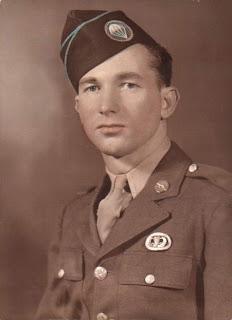
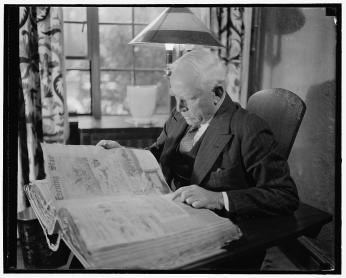
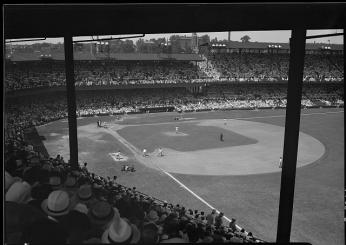
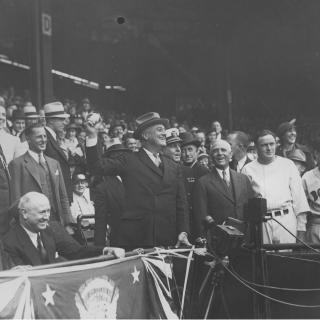

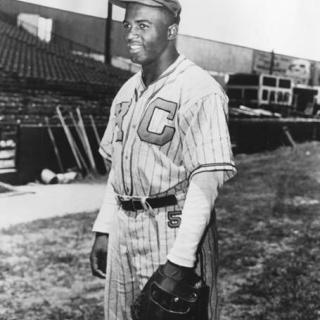
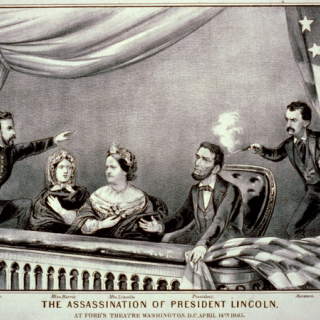
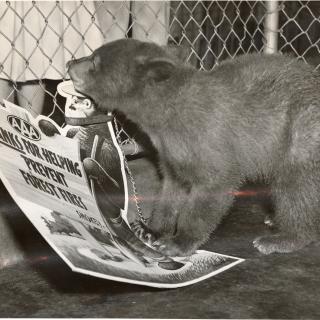
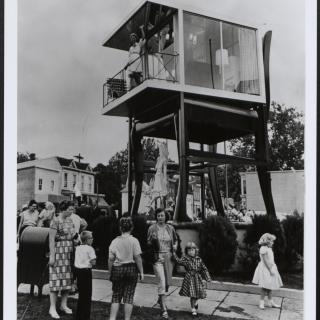

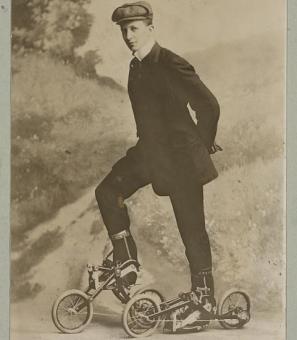 >
>